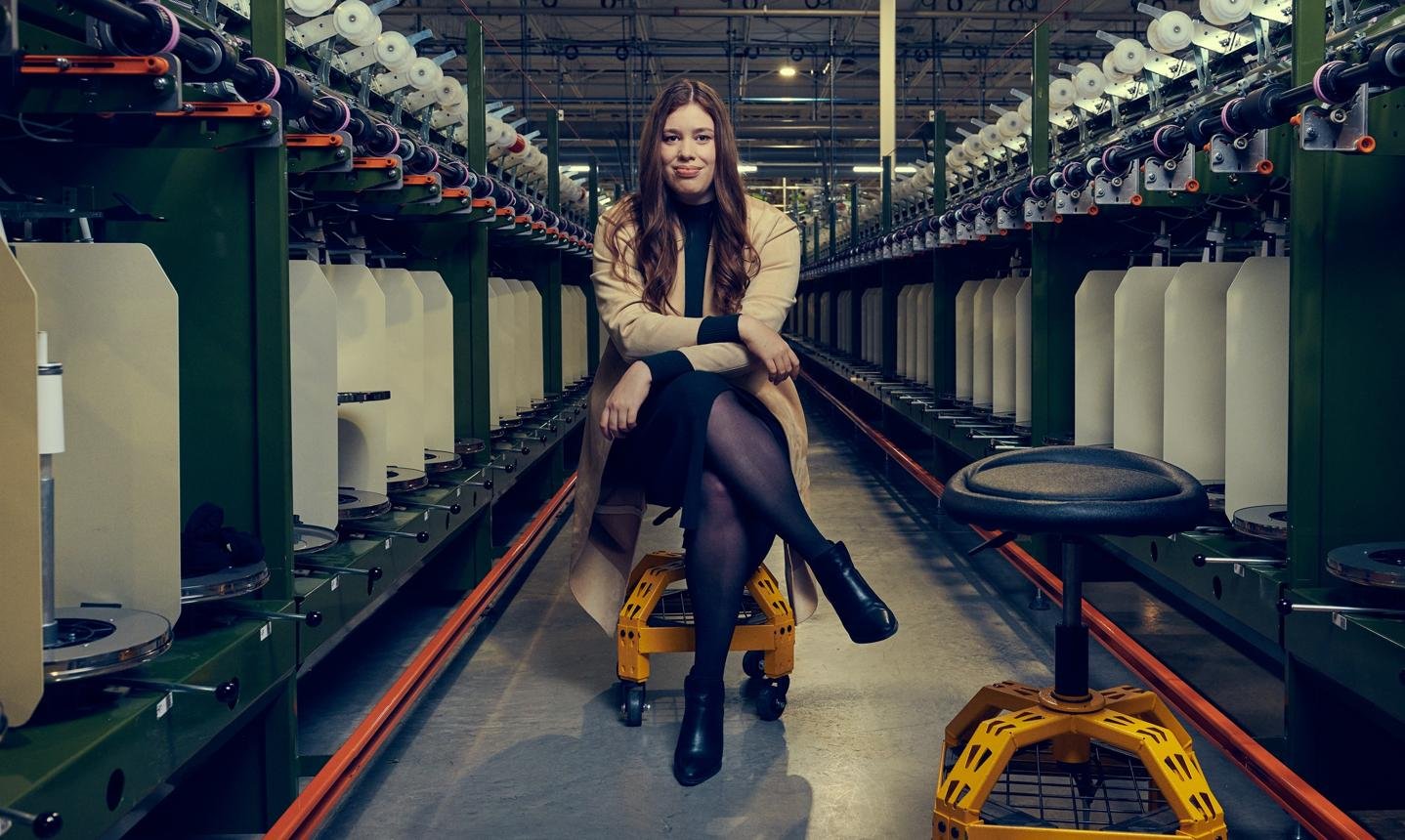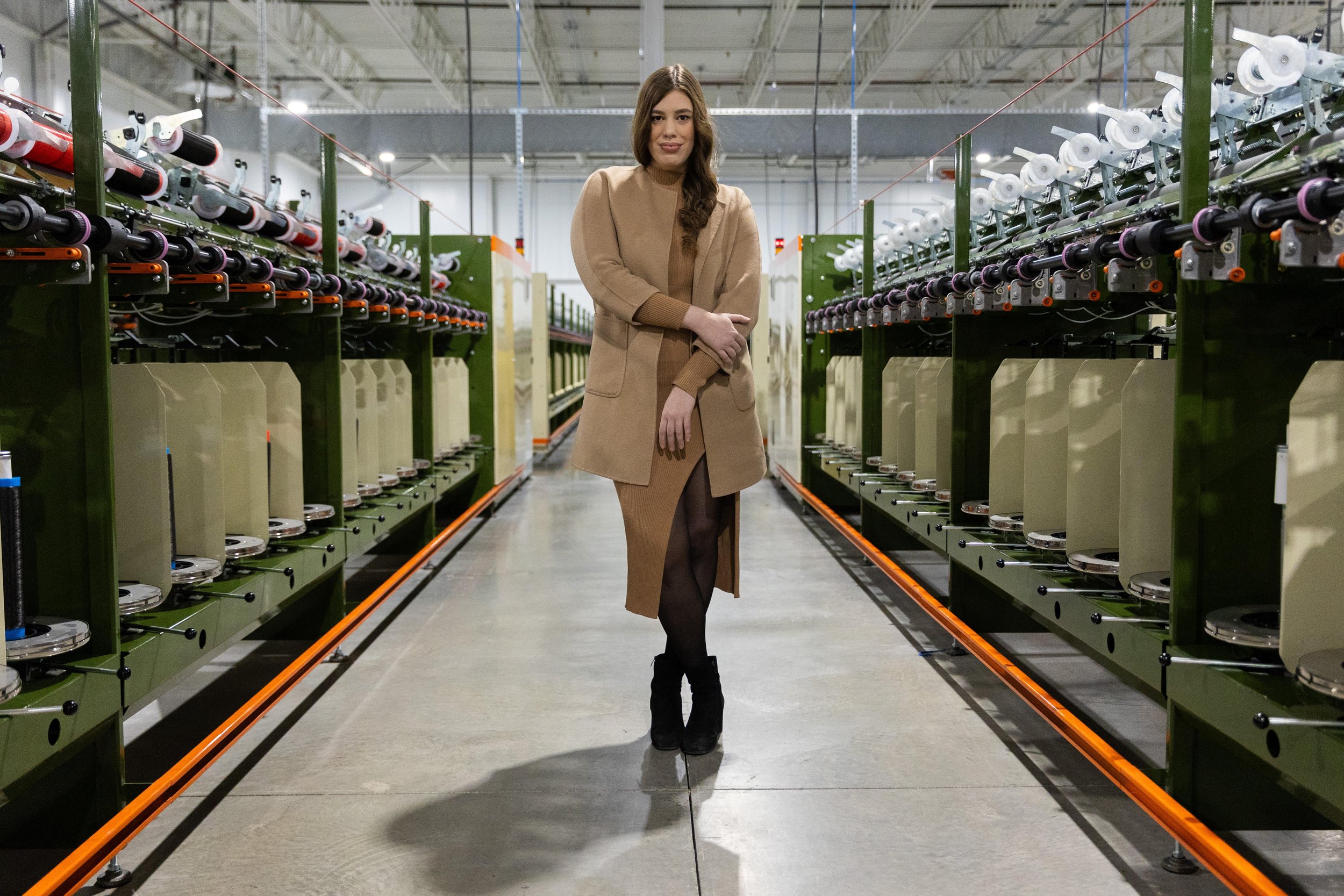In the Wild with Katherine Homuth, Founder of Sheertex, SRTX
Resilience, risk, and owning your story. These were the key themes at The 'F' Factor: Fueling Founders, an event that launched Invest Ottawa’s Women’s Month.
As keynote speaker, Katherine Homuth, founder and CEO of Sheertex and parent company SRTX, shared candid insights on the realities of entrepreneurship, from navigating setbacks to building the right team. Interviewed by Stephanie Lipp, founder of Canadian MycoFutures, their fireside chat brought to light the real challenges founders face beyond the highlight reel.
I’ve followed Katherine’s work for a while, but hearing her speak in person was something else entirely. She wasn’t just sharing polished success stories—she was open about the struggles, the tough calls, and the relentless problem-solving that comes with building something from the ground up.
Here are my biggest takeaways from her conversation with Stephanie (who I’ll be featuring in a follow-up article).
The "Surface Area" Approach: Creating More Chances for Success
Homuth describes entrepreneurship as a game of probabilities. The more opportunities you create for yourself—whether through networking, experimenting with new ideas, or pitching investors—the higher your chances of success.
Expanding your surface area means increasing the number of ways your business can gain traction, whether through funding, partnerships, or simply being in the right place at the right time.
For Sheertex, this meant constant iteration, a relentless approach to problem-solving, and ensuring that the company’s story was front and center across multiple channels. For other entrepreneurs, it could mean exploring new revenue streams, optimizing marketing efforts, or being open to unexpected opportunities.
It also means getting out there. Go to the networking events. Book the coffee dates. Every connection, however uncomfortable it may make you, creates more surface area for potential opportunities. Staying behind your computer screen doesn't do it. The more surface area, the more opportunity you create for yourself and your business.
The more surface area, the more opportunity you create for yourself and your business.
Success Doesn’t Mean the Challenges Disappear
One of the biggest myths about success is that once you "make it," the struggles stop. Homuth was clear: that’s not how it works. Even as Sheertex and SRTX scale, new hurdles emerge—funding, manufacturing challenges, hiring the right people, tariffs. Being a successful entrepreneur doesn’t mean escaping problems; it means getting better at solving them.
She also stressed that startups aren’t for everyone. They require a high tolerance for risk, change, and uncertainty. She admitted that she could have chosen a path that made her happier in the moment, but it would have left her deeply unfulfilled. Entrepreneurship isn’t just about chasing success—it’s about chasing something meaningful, even when it’s hard.
Entrepreneurship isn’t just about chasing success—it’s about chasing something meaningful, even when it’s hard.
Own Your Narrative—Or Someone Else Will
Homuth drove home the importance of founders owning their stories. If you don’t control the narrative, someone else—investors, competitors, or the media—will. That means being transparent, sharing the real journey, and making sure your story reflects your vision, not someone else’s assumptions.
She also made a point that stuck with me: corporate values can be bullsh*t if they’re just words on a wall. Instead of dictating values from the top down, she recommends looking at your team. Who’s excelling? What values do they bring? Who’s struggling? Why? The culture of a company isn’t built on what’s written in a brand book—it’s built on what actually happens inside the business. And once you identify what truly matters, share that story to attract and retain the right people.
Building the Right Team Matters As Much or More Than the Right Investors
I found this part of her talk particularly insightful. Many founders assume that if they can land the right investor, everything else will fall into place. But Homuth was realistic: unless you’re well-connected (which most founders, especially Canadian women, aren’t), you don’t get to be picky about investors. You take what you can get.
That’s why it’s even more important to have a team that believes in you. Investors may come and go, but the people inside your business—the ones who help build it day in and day out—are the real foundation. If you’re starting solo, build a network of fellow founders who understand the journey. Find people who get it and will support you, because no one succeeds alone.
The Sheertex Story: A Case Study in Innovation and Grit
Homuth’s journey with Sheertex is proof that big ideas alone aren’t enough—you need execution, adaptability, and resilience. Sheertex started with a bold idea: using high-tech polymer fibers (the kind found in bulletproof vests) to create ultra-durable hosiery. But the road to success was anything but smooth.
Early prototypes failed. Scaling production was a nightmare. But she kept pushing. She secured funding, doubled down on R&D, and built a brand that is now recognized globally.
No founder has all the answers from the start. Mistakes are inevitable.
Her takeaway? No founder has all the answers from the start. Mistakes are inevitable. But every mistake is a chance to refine your approach.
No founder has all the answers from the start. Mistakes are inevitable.
And sometimes, yes, it costs money to learn. She admitted that if she could do it over, she’d spend a lot less—but spending that money was part of her education as a founder.
Entrepreneurship Through Different Lenses
One of the most thought-provoking parts of her talk was how advice is shaped by personal experience—especially when it comes from men in the industry. People will tell you what worked for them, assuming the same rules apply to everyone. And if you don’t follow their blueprint, they’ll say you’re an outlier.
But the truth is, the same rules don’t apply equally. Women—especially in Canada—face additional barriers when it comes to funding, credibility, and opportunity.
But the truth is, the same rules don’t apply equally. Women—especially in Canada—face additional barriers when it comes to funding, credibility, and opportunity. Homuth recognizes this, and her advice was clear: understand the system, acknowledge the biases, and make a plan to navigate them, learning along the way. She said that ten years ago, she didn’t know anything. And ten years from now, she hopes she looks back and say she knew nothing again.
Another way to help? Support each other. Surround yourself with people who recognize these challenges and help lift each other up.
Final Thoughts: Why This Stuck with Me
As someone who works with brands and entrepreneurs every day, this conversation reaffirmed something I already believed: resilience and adaptability are everything. The best founders don’t just have good ideas—they have the persistence to keep going when things don’t work the first, second, or tenth time.
Hearing Homuth speak reminded me why I love working with founders.
Every entrepreneur has a unique journey, but the most successful ones share a common thread: they own their story, they surround themselves with the right people, and they keep showing up, no matter how hard it gets.
At Wild Idea Co., this is exactly what we help founders do—clarify their vision, shape their narrative, and build brands that can stand the test of time. If you’re ready to expand your surface area and create more opportunities for success, let’s chat.
You can watch a replay of the event on Invest Ottawa’s YouTube channel.



